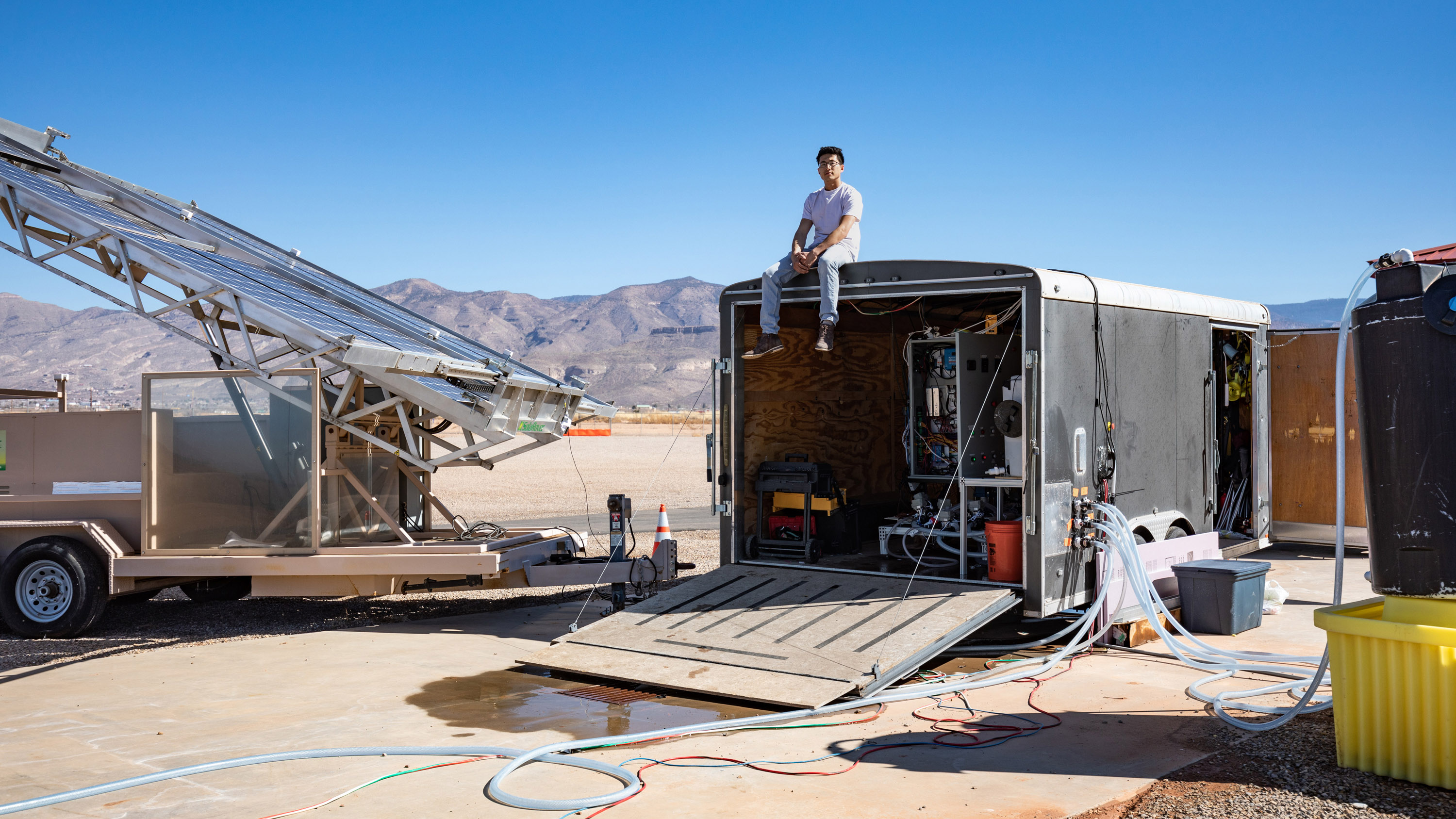Solar-powered desalination
A new system could make brackish groundwater drinkable at low cost in communities where seawater and grid power are limited.

Brackish groundwater is a major potential source of drinking water in underserved areas of the world, but desalinating it affordably is a challenge. A new system developed by mechanical engineering professor Amos Winter, Jon Bessette, SM ’22, and staff engineer Shane Pratt manages to do the job entirely on solar energy, with no need for batteries or grid power.
The system is a variation of a previous design based on electrodialysis, which uses an electric field to draw out salt ions as water is pumped through a stack of ion-exchange membranes. That design incorporated both a solar array and a sensor-based control system that dialed the desalting process up and down in response to the amount of sunlight available, but it made the necessary calculations only every three minutes.

“In that time, a cloud could literally come by and block the sun,” Winter says. So backup batteries were still needed.
The new system, however, updates the desalination rate three to five times per second. That means it doesn’t have to make up for any lag in solar energy, so it doesn’t require batteries for energy storage.
In a six-month trial in New Mexico, a prototype produced up to 5,000 liters per day despite large swings in weather and available sunlight—typically while harnessing more than 94% of the electrical energy generated by its solar panels. The team hopes to launch a company based on the technology soon.
Keep Reading
Most Popular
AI means the end of internet search as we’ve known it
Despite fewer clicks, copyright fights, and sometimes iffy answers, AI could unlock new ways to summon all the world’s knowledge.
10 Breakthrough Technologies 2025
What will really matter in the long run? That’s the question we tackle each year as we compile this annual list.
How a top Chinese AI model overcame US sanctions
With a new reasoning model that matches the performance of ChatGPT o1, DeepSeek managed to turn restrictions into innovation.
The 8 worst technology failures of 2024
Vertical farms, woke AI, and 23andMe made our annual list of failed tech.
Stay connected
Get the latest updates from
MIT Technology Review
Discover special offers, top stories, upcoming events, and more.